Bachelor of Science in Finance New England campus experience

Program Overview Why get a bachelor's in finance on campus?
Turn numbers into strategy with a Bachelor of Science (BS) in Finance from Southern New Hampshire University. In this on-campus program, you’ll learn how to manage money, analyze data and navigate global markets — building the expertise to provide meaningful financial guidance for clients and businesses alike.
Skills you'll learn:
- Client financial plan development
- Domestic and global economic environment exploration
- Financial statement analysis
- Sound financial decision methodology
- Compliant ethical and legal practice application
- Stock market portfolio management
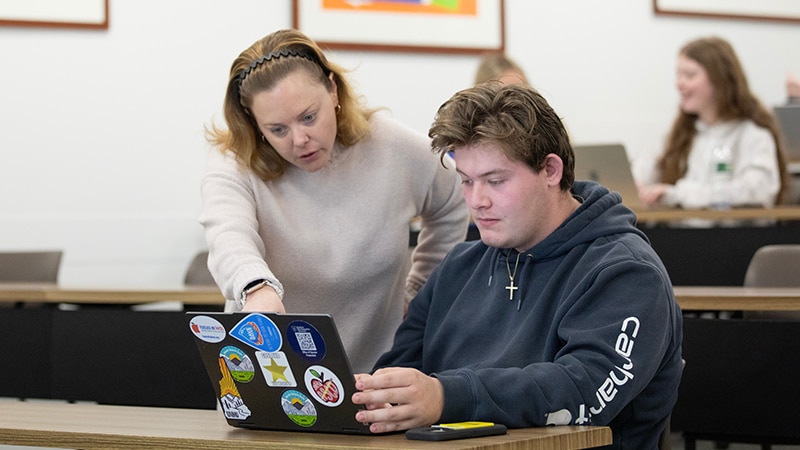
Courses & Curriculum Prepare for your career with on-campus finance courses
This curriculum helps you turn numbers into stories, using cutting-edge tools and real-world examples to analyze and interpret financial reporting data. Along the way, you’ll complete a well-rounded business core that strengthens your skills in communication, creativity, teamwork, ethical decision-making and global awareness.
Interested in learning in an online environment? This same curriculum is offered through SNHU's online finance degree.
Learn from instructors with industry experience
Our faculty members bring with them decades of knowledge and experience in business. They look forward to supporting your journey in the classroom and as you work toward a career in business.
Greg Randolph

Position
Professor, Department Chair (Finance and Economics)
Joined SNHU
2007
Education
- PhD in Economics from West Virginia University
- BA in Finance (economics minor) from Grove City College
With public economics as his primary research field, Dr. Greg Randolph's current research projects include examining the impact of federal regulations, evaluating the criminal justice system and exploring the use of media to teach introductory economics courses. His publications include articles in the Journal of Institutional Economics, Business and Politics and Economics and Politics. He has also served as the co-editor of "Entrepreneurial Action, Public Policy, and Economic Outcomes" and "Public Policy, Productive and Unproductive Entrepreneurship" with Robert Salvino and Michael Tasto.
To learn more about SNHU faculty, visit our campus faculty page.
Campus major courses
These classes let you get hands-on with the world of investing through building a virtual stock portfolio and using realistic simulations to put what you learn into action. With access to industry-standard trading software like TD Ameritrade U, you’ll practice guiding clients toward their goals, applying what you know about taxes, investments, securities, insurance, retirement planning and real estate.
Courses may include:
Details about the major courses for this program will be available soon.
Campus general education courses
All undergraduate students are required to take general education courses, which are part of SNHU's newly redesigned program, The Commons. The goal of The Commons' curriculum is to empower you with some of the most in-demand skills, so you can succeed not only in your academic career, but in your personal and professional life too.
Courses may include:
Can’t wait? You don’t have to!
Apply now if you’re ready, and have your decision within 30 days. Or, schedule a visit and come see us in person!
Have questions? Visit our Contact Us page.
Career Outlook What can I do with a bachelor's in finance?
Earning your bachelor’s in finance can open doors to a wide range of career opportunities with banks, investment firms, credit card companies, insurance providers and mortgage lenders. You could also choose to work independently as a tax preparer, personal financial advisor or real estate appraiser. Keep in mind that some of these paths may require additional state-specific licenses.
Career paths include:
- Financial analyst
- Personal banker
- Risk analyst
- Financial consultant
Increase nationally in roles for financial and investment analysts through 2032, projected by the U.S. Bureau of Labor Statistics (BLS).1
Median annual pay nationally for financial and investment analysts as of May 2023, according to the BLS.1 Statistic not based on wage data for SNHU graduates.
Understanding the numbers
When reviewing job growth and salary information, it’s important to remember that actual numbers can vary due to many different factors—like years of experience in the role, industry of employment, geographic location, worker skill and economic conditions. Cited projections are based on Bureau of Labor Statistics data, not on SNHU graduate outcomes, and do not guarantee actual salary or job growth.

Campus Student Experience So, what's it like taking classes on campus?
At SNHU, learning doesn’t stop at the classroom door. You’ll team up with peers and professors on projects that sharpen your skills and expand your thinking. You can also join the Economics and Finance Association to connect with others who share your passion for numbers, strategy and impact.

Student support
At SNHU, you don’t have to do this college thing alone. You’ll have help from your advisor, access to tutoring and office hours, career coaching, and mental health services so you can do your best and feel your best.
Additionally, our Office of Diversity and Campus Accessibility Center make campus a safe place for everyone. Visit our Student Services page to learn more about our support offerings.

Small class sizes
With an average class size of 15-25 (depending on your major) you’ll learn in an environment where professors with real world experience know you by name.
Here, you’re not getting lost in giant lecture halls, but instead, actively participating in thoughtful dialogue where you’re always encouraged to collaborate with your peers and ask questions when they arise.
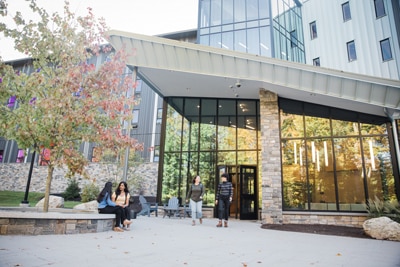
State-of-the-art facilities
Our 300-acre campus has everything you need. From technology-advanced classroom settings to your dorms complete with fitness centers and hangout spots, our goal is to give you the best college experience possible.
Whether you’re learning in a classroom, in a lab, on the field, or in your field, you’ll have what you need to be successful from the moment you wake up to the moment you close your textbooks.
School of Business Learn about the School of Business
In the School of Business, you’ll tackle real-world business challenges with the help of your experienced professors. From interning with local sports teams to learning the ins and outs of starting your own business, you can hone your skills through peer collaboration, case studies and participating in business competitions. Whether you’re focusing on an organization’s finances, marketing, technology or leadership, you’ll get firsthand experience from day one.
Business simulations
Sales immersion lab
Pitch competitions
How SNHU makes college affordable
At Southern New Hampshire University, we're on a mission to make high-quality education more accessible with more affordable tuition. With 70+ career-focused majors, state-of-the-art facilities, D2 sports and over 70 student clubs and organizations, you can get the campus experience you've always dreamed of at a more affordable price.
Fill out the FAFSA to see if you’re eligible for grants or work-study. (You could also be offered loans, though you’ll have to pay those back later.)
Transfer up to 90 credits toward your bachelor's degree program at SNHU. If you’ve taken one course or many, we’ll evaluate them for you.
Getting free money for college – from SNHU or an outside organization – could help you save hundreds or even thousands of dollars.
Our collaborative partnerships with high schools enhance academic opportunities and college accessibility for some high school students.
Hear from us
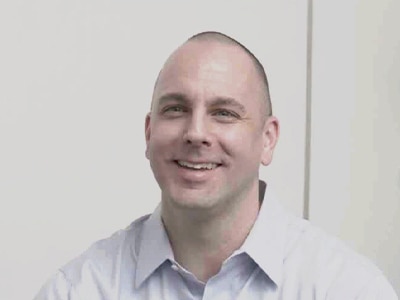
Accreditations
SNHU is accredited by the regional accreditor the New England Commission of Higher Education (NECHE). The university also carries specialized accreditations for some programs.
This program and its concentrations are accredited by the Accreditation Council for Business Schools and Programs (ACBSP). Student achievement data can be found on the ACBSP accreditation page.
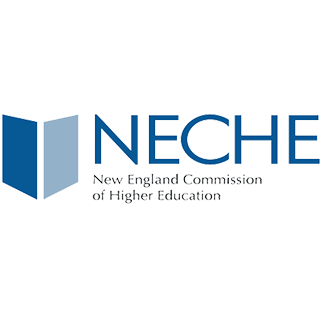
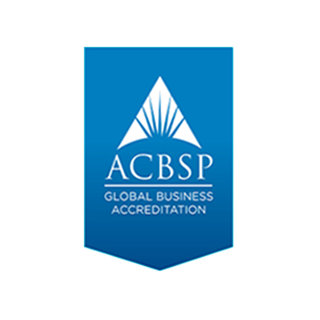
Sources & Citations
1Bureau of Labor Statistics, U.S. Department of Labor, Occupational Outlook Handbook, on the internet, at https://www.bls.gov/ooh/business-and-financial/financial-analysts.htm (viewed Apr. 19, 2024). Cited projections may not reflect local and/or short-term economic or job conditions and do not guarantee actual job growth.
Your dream school is waiting
Apply now or schedule a visit today.


